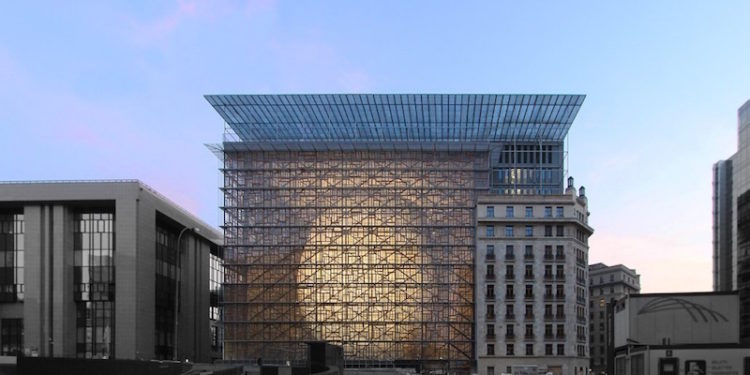European fishermen’s organisation Europêche has hit out at accusations of false lobbying levelled against it by NGOs Corporate Europe Observatory (CEO) and Seas at Risk.
The NGOs have criticised fishing industry figures for having been present in the EU Council building’s press room during last year’s TACs and Quotas negotiations, accusing fisheries ministers of lifting TACs above the scientific advice due to the influence of the fishing lobby.
Europêche claims that the NGOs’ ‘Fishing for Influence’ report trivialises the complex decision-making process of setting the annual fishing opportunities and accompanying fishing management measures by the Council of Fisheries Ministers.
‘The statement by these NGOs that the Council of Ministers establishes, every year, TACs above the scientific recommendations is simply false and manipulative,’ said Europêche president Javier Garat, commenting that the reality is that ICES offers several scenarios in its yearly advice to achieve Maximum Sustainable Yields (MSY) by 2017, 2018, 2019 or 2020.
He said that ICES only takes into account biological considerations, whereas the Scientific, Technical and Economic Committee for Fisheries (STECF) includes a socio-economic analysis in its advice. A third set of advice comes from the Advisory Councils in which both the industry and the NGO community are able to share advice with the European Commission (EC) and Member States.
On the basis of these three sets of advice, the EC formulates its proposal and the Council of Fisheries Ministers decides what scenario for every fishery is the best to guarantee a sustainable fishing activity from an environmental, social and economic point of view. This is all done respecting the objectives and rules laid down in the Common Fisheries Policy.
‘The article manipulates the interpretation of the scientific recommendations by the International Council for the Exploration of the Sea (ICES) in order to reach biased conclusions,’ Europêche states.
‘The European fishing sector is the first interested in guaranteeing the sustainability of the fish resources and has, of course, every right to watch over the interests of an activity that employs 150,000 fishermen in the EU and which provides more than 15 billion healthy meals per year to the growing population,’ Javier Garat said, adding that Europêche rejects the accusation by CEO and Seas At Risk that it exerts pressure illegally.
‘Europêche’s registration in the transparency register of the EU and its social media posts clearly demonstrate that it is and will remain committed to openness and transparency in all its activities,’ he said, commenting that fisheries are an extremely complex policy area which involves a high degree of technical knowledge, and an efficient and sustainable management of fisheries resources requires first-hand expertise on a wide range of different fisheries and stocks.
‘It is naive and ridiculous to think that the mere presence in the press room of the Council building can shape the final decision on TACs & Quotas. They result from closed-door and rigorous negotiations between decision-makers, after a lengthy process of consultations with all stakeholders, including the industry and the NGO community, which lasts for months,’ he said.









